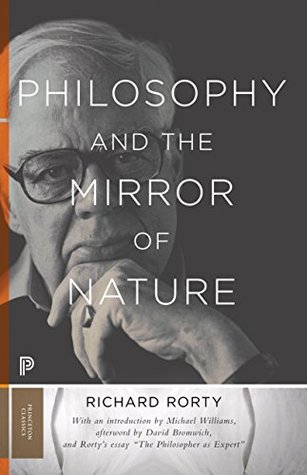On the periphery of the history of modern philosophy, one finds figures who, without forming a “tradition,” resemble each other in their distrust of the notion that man’s essence is to be a knower of essences. Goethe, Kierkegaard, Santayana, William James, Dewey, the later Wittgenstein, the later Heidegger, are figures of this sort. They are often accused of relativism or cynicism. They are often dubious about progress, and especially about the latest claim that such-and-such a discipline has at last made the nature of human knowledge so clear that reason will now spread throughout the rest of
...more
Welcome back. Just a moment while we sign you in to your Goodreads account.


